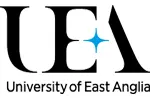

the United Kingdom
University of East Anglia (UEA)| The award | How you will study | Study duration | Course start | Domestic course fees | International course fees |
|---|---|---|---|---|---|
| MSc | Full-time | find out | find out | find out | find out |
Study
The MSc Impact Evaluation for International Development degree offers skills in the basics of modern evidence-based policy making and impact evaluation, including the contexts and practices of evaluation, research design and data production for evaluation, and basic and more advanced methods of quantitative and qualitative analysis. The course is designed for those interested in designing and implementing development projects and programmes and/or in researching development effectiveness, and need the skills for undertaking quality impact evaluations.
Structure
This Master's combines theory and practice through two specialist modules: Welfare and Evaluation in Development, Applied Methods in Impact Evaluation. Students build analytical skills throughout the content and can choose modules from within the School of International Development and other departments at UEA to tailor their programme.
Teaching
Lecturers who teach on this course have wide practical experience in Impact Evaluation - many are International Development Economists. The School of International Development at the University of East Anglia is a globally renowned department for teaching, research and consultancy on international development. Research in the School addresses challenges in developing and transition economies via disciplinary and multi/interdisciplinary approaches. Excellent staff:student ratios and teaching methods mean this School offers small class sizes and a friendly learning environment.
Employability
Graduates from this Master's programme are likely to become policy makers, non-governmental officials, consultants or research institute staff who are involved in impact evaluations. Students can choose an internship or work placement at various organisations, as UEA are partnered with CARE, Oxfam GB and Tearfund to explore opportunities.
Open to applicants with a good degree (min 2:1 or equivalent) in a Social Sciences subject. Basic statistics skills are essential - a pre-sessional 2-week long statistics course, offered by the university, is mandatory. UEA Admissions will also take into account the employment experience of applicants where relevant.
Below are some suggested courses at other providers that you may also be interested in:
Research in Special Needs Education Master Degree
Faculty of Educational Sciences, University of Oslo
Find out moreDistance and Independent Studies Center, University of Kaiserslautern-Landau (RPTU), Germany
Find out morePolitical Science Bachelor of International Liberal Arts
International College of Liberal Arts (iCLA) at Yamanashi Gakuin University
Find out moreInternational Human Resource Management MSc, PG Cert, PG Dip
University of Liverpool Online Programmes
Find out moreIf you do not meet the entry requirements for this course then consider one of these postgraduate preparation courses from another institution:
Graduate Diploma of Engineering (Safety, Risk and Reliability)
Engineering Institute of Technology
Find out moreGraduate Diploma of Engineering Maintenance Management
Federation University Australia
Find out moreFaculty of Engineering, Architecture and Information Technology, University of Queensland
Find out moreThere are 413 other courses listed from University of East Anglia (UEA). A selection of these are displayed below:
Adult Literacy, Lifelong Learning and Development: International Perspectives MA
University of East Anglia (UEA)
Find out moreFind out more about studying in the United Kingdom